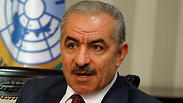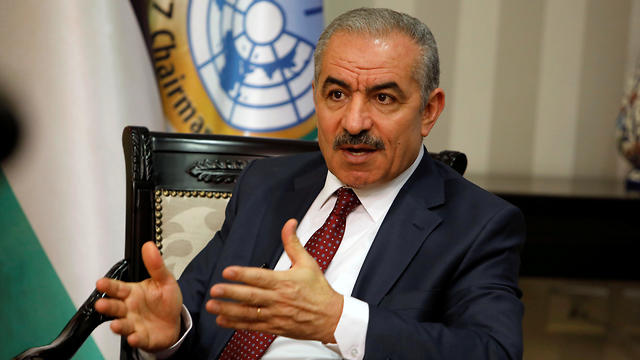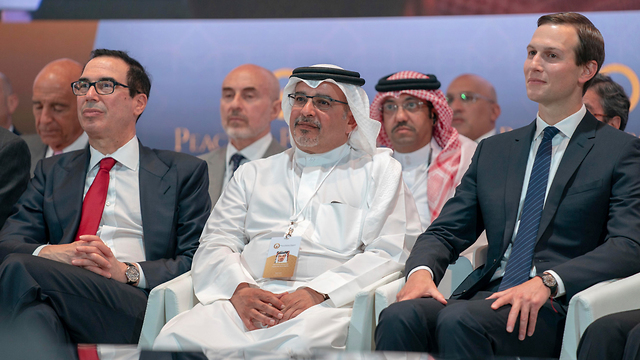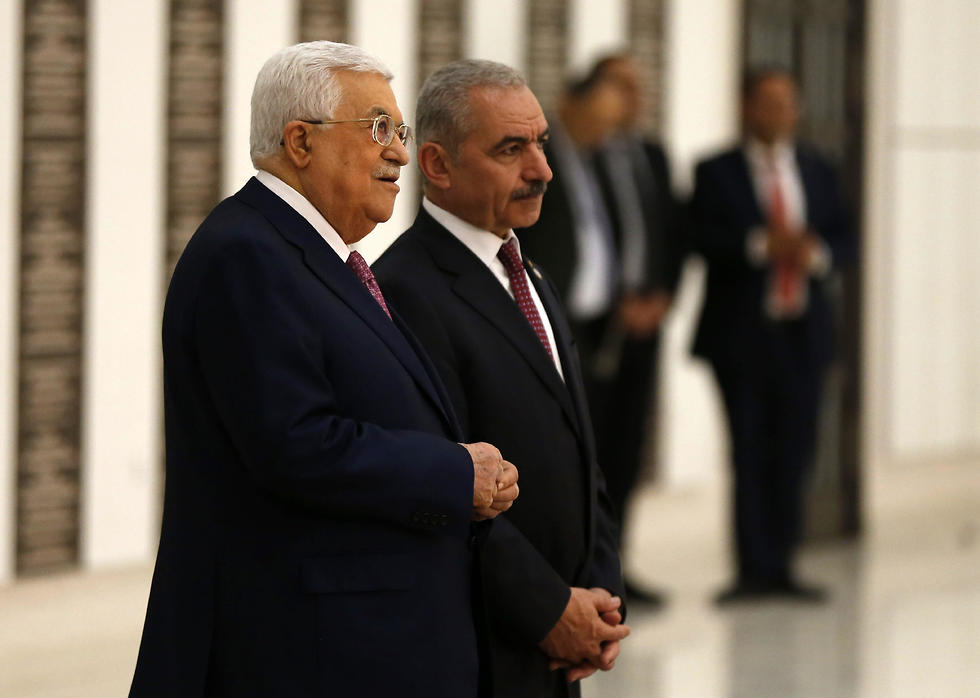
Palestinian PM: Bahrain will lead nowhere, Trump's economic approach 'divorced from reality'
Day after U.S.-led workshop on economic aspect of Mideast peace, Mohammad Shtayyeh says conference was nothing more than an intellectual exercise, expresses concern over possible American abandonment of two-state solution
RAMALLAH, West Bank - A day after the Trump administration wrapped up an international conference meant to lay the economic foundations for Israeli-Palestinian peace, the Palestinian premier said it was "divorced from reality" and unlikely to evolve into a political plan.
Washington billed the two-day workshop in Bahrain as the first stage of its broader blueprint to resolve the Middle East conflict. U.S. Gulf Arab allies said the economic initiative had promise if a political settlement is reached.

But Palestinian Prime Minister Mohammad Shtayyeh said on Thursday he felt the initiative "will not really materialise and it's not going to go anywhere."
"Bahrain was just simply a terrible exercise. I think it's an economic workshop that has been fully and totally divorced from reality," he said in his office in the West Bank city of Ramallah. "(It was) no more than an intellectual exercise."
The Bahrain "Prosperity to Peace" workshop called for a $50 billion investment fund to stimulate the Palestinian and neighbouring Arab state economies, more than half to be spent in the Palestinian territories over 10 years.
But Palestinian leaders boycotted the conference and are refusing to engage with the White House - accusing it of pro-Israel bias after U.S. President Donald Trump recognised Jerusalem as Israel's capital in 2017. The Palestinians demand East Jerusalem as the capital of a future state.
The political details of the long-delayed plan, which is spearheaded by Trump's son-in-law Jared Kushner, remain a secret known only to a handful of people.
Kushner and Trump's Mideast envoy Jason Greenblatt say the political elements will be unveiled later, possibly after Israel's second snap election of the year, set for September.

But Palestinians fear the Trump team may abandon the two-state solution, which envisages the creation of an independent Palestinian state co-existing alongside Israel.
"We haven't seen in the paper any reference to occupation, to settlements, to Palestine, to two states, to 1967 borders, to Jerusalem and so on," Shtayyeh said.
Of the Israelis, he said: "The debate in Israel today, it's very unfortunate that it is not between those who want to end occupation and those who want to maintain occupation. The debate in Israel today is between those who want to maintain the status quo and those who want to annex certain parts of the West Bank."
Israel captured the West Bank, East Jerusalem and the Gaza Strip in the 1967 Six-Day War, territories where the Palestinians now seek statehood.
Days before the elections in April, Prime Minister Benjamin Netanyahu pledged to annex Jewish settlements in the West Bank if he won.
Economic woes
Shtayyeh, a member of Palestinian President Mahmoud Abbas's Fatah faction, was named in March to replace Rami al-Hamdallah, who had spearheaded reconciliation efforts with Fatah's principal internal rival, the Islamist Hamas, which rules Gaza.
Few doubt the economist Shtayyeh's grasp of financial issues facing the Palestinian Authority, which exercises limited self-rule in the West Bank. He formerly headed PECDAR, the Palestinian Economic Council for Development and Reconstruction.
But he inherited a government squeezed by steep U.S. aid cuts, the crisis exacerbated by a political dispute with Israel over the withholding of some 5 percent of the approximately $190 million monthly tax revenues that Israel transfers to the Palestinian Authority.
The mounting financial pressures on the PA have sent its debt soaring to $3 billion, and led to a severe contraction in its estimated $13 billion GDP economy, according to the PA's top central banker.
Shtayyeh said the fundamental economic problem was Israel's continuing occupation of the West Bank, which meant Palestinians "don't control our borders, we don't control our entry points, our exit points, and we have no control of our land."
The current financial crisis, he said, had been exacerbated by the tax dispute with Israel.
Israel said the sum it is withholding is to match stipends sent by the PA to families of Palestinian terrorists in Israeli jails, payments Israel says encourage attacks.
The PA has refused to accept any tax transfers until those funds are restored. The shortfall, Shtayyeh said, had contributed to the PA - the largest employer in the Palestinian Territories - having to cut its own civil servants salaries in half.
He warned that this situation could soon weaken the PA security forces that work closely with Israel's military in the West Bank.
"Can we maintain this situation? I'm not sure about that. If the policeman has no petrol in his car, he will not be able to maintain law in order in the streets. That is where the problem is," he said.












